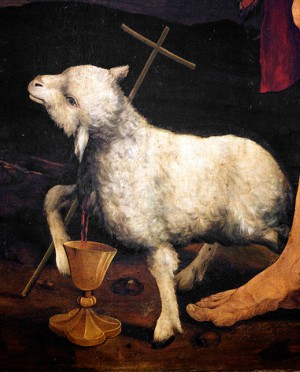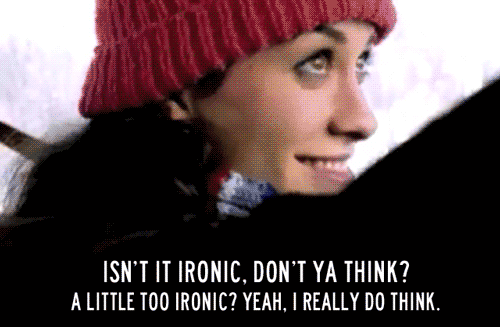Sermon for Good Friday evening, preached on March 30, 2018, by the Rev. Daniel M. Ulrich.
The seasons & days of the church year are aptly named. They describe the events remembered that day
or summarize and overall theme of the season.
Advent is the season in which we look forward to Christ’s advent, His
coming bon on Christmas Day & on the Last Day. Epiphany, which means the revelation of
truth, is the season when the truth of Jesus’ identity is revealed. On Palm Sunday we remember Jesus entering
Jerusalem to shouts of “Hosanna” & the waving of palm branches. Maundy Thursday gets its name from the Latin
word for mandate, in reference to Jesus’ words, “A new commandment [or mandate] I give to you, that you love another:
just as I have loved you” (Jn 13:34). These
names all fit, but the name we give today is a bit ironic. We call today good, Good Friday, but I’m
certain none of Jesus’ disciples thought today was good when it happened.
 There are many
ways to define the word good. There are
many things that we call good, but ultimately what we call good boils down to
personal tastes & preferences. However,
there are a few things that are almost universally understood as being not
good: like suffering & death. When
you get right down to it, you’d be hard pressed to find someone who’d say
suffering & death are completely good.
There are many
ways to define the word good. There are
many things that we call good, but ultimately what we call good boils down to
personal tastes & preferences. However,
there are a few things that are almost universally understood as being not
good: like suffering & death. When
you get right down to it, you’d be hard pressed to find someone who’d say
suffering & death are completely good.
Jesus’ suffering
& death mark Good Friday. Every
year, on this day, we gather together & we hear from Scripture all of the
suffering & non-good, that Jesus endured as He made His way to the
cross. Immediately we hear about Judas’
betrayal of Christ. For just 30 pieces
of silver, one of Jesus’ disciples handed Him over to His enemies. Who could call this good?!? Then we hear about another disciple who
betrayed Jesus. Peter 3 times denied
knowing our Lord. Who could call this good?!? We hear of the sham trial held for the sole
purpose of getting a death sentence. Who
could call this good?!?
Barabbas, a robber & murder, was released while Jesus, innocent of
all wrong, was put in chains. Who
could call this good?!? Christ
was beaten & flogged by Roman soldiers, who took pleasure in it. Mockingly they gave Him His own crown of
thorns that pierced His brow. They
clothed Him in purple & worshipped Him in jest before they stripped Him
naked & beat Him some more. Who
could call this good?!? The
crowd shouted for His crucifixion & Christ was forced to carry the
instrument of His death. Who
could call this good?!? Soldiers
gambled for His cloths. Who
could call this good?!? Jesus’
mother stood at the foot of the cross and watched her son die. Who could call this good?!? His burial was a rush job & He was
laid to rest in a borrowed tomb. Who
could call this good?!? No
one. No one could call this good.
None of Jesus’
followers could’ve watched all of this & called it good. Their Lord, their Teacher, their Master was
dead. The Man who they believed would
restore the kingdom of Israel was gone.
With eyes filled with tears, with hearts filled with uncertainty &
fear, they could see nothing good, & on the surface, neither can we.
Hearing all of
this, imagining everything Jesus went through, we have a hard time calling it
good. We come to worship today
specifically to hear about Jesus’ death, & we think it’s a funeral. But Good Friday isn’t a funeral for
Christ. It’s a day of repentance and
restrained joy.
Good Friday is a
day of repentance over our sin. We
recognize our sin & its great cost.
The wages of sin is death, & death is never a good thing. Death wasn’t the plan. You and I weren’t meant to die, but that’s
what we deserve because of our sin. The
death of the cross should be ours, but Christ paid it in your place. This is good.
God calls this good. This is the
Good News of the Gospel by which you are saved.
The only reason we
can call today good is because Jesus’ death on the cross brings the exact opposite. It brings life & joy. This is what God promises us, & this is
what we believe. This is what we confess
every week in the Creed. Jesus Christ has redeemed me, a lost &
condemned person, purchased & won me from all sins, from death, and from
the power of the devil, not with gold or silver, but with His holy precious
blood & with His innocent suffering & death, that I may be His own
& live under Him in His kingdom & serve Him in everlasting
righteousness, innocence, & blessedness.
This is good. This is what
Good Friday is about. It’s about our
Savior who exchanged His life for yours.
It’s about the forgiveness of sins you receive because Jesus died for
you. It’s about the everlasting life you
receive in Him. All of this is truly
good. All of this brings us joy, joy
that’s there even on days when there appears to be no good.
It can be hard for
us to call today good. Hearing about
Jesus’ suffering, remembering that today is the day He died on the cross for
our sin, we can’t see good. But today is
a good day because God has called it good.
He gives to you good through the cross of Christ. Because He died, you’re forgiven. Because He gave up His life you have
life. This is good, & with faith, we
call it good! In Jesus’ name...Amen.







